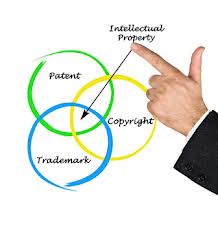When you start a new business, you are essentially creating something new unless it is a franchise or rented business. And if you have created it from scratch you would also like to protect it from being copied or take advantage of by other business entities/individual. According to the Universal Declaration of Human Rights, “everyone has the right to the protection of the moral and material interests resulting from any scientific, literary or artistic production of which he is the author”. What this means is that you hold the intellectual rights on the things created by you. And these things you create are called as intellectual Properties.
What is Intellectual Property?
Intellectual property (IP) is a legal concept which refers to creations of the mind for which exclusive rights are recognized. Under intellectual property law, owners are granted certain exclusive rights to a variety of intangible assets, such asWords, phrases, symbols, and designs
- Words, phrases, symbols, and designs
- Musical, literary, and artistic works
- Discoveries and inventions
Common types of intellectual property rights include trademarks, copyright, patents and trade secrets.
Difference between Trademark, Copyright and Patent
-
Trademark
A trademark is a recognizable sign, design or expression which identifies products or services of a particular source from those of others. The trademark owner can be an individual, business organization, or any legal entity. A trademark may be located on a package, a label, a voucher or on the product itself. For the sake of corporate identity trademarks are also being displayed on company buildings.
Example:
- Brand Name – Apple computers
- Logo – Apple bitten
- Slogan – “Think Different”
- You will have to apply for Trademark registration separately for name, logo and slogan.
Rights – Trademark rights prevent others from using a confusingly similar mark, but does not prevent others from making the same goods or from selling the same goods or services under a clearly different mark. In other words Trademark protects the identity of the brand in market place.
Read more about Why to and How to Register your Trademark
-
Copyright
Copyright is a form of protection provided to the authors of “original works of authorship” including literary, dramatic, musical, artistic, and certain other intellectual works, both published and unpublished. It gives the copyright holder the right to be credited for the work, to determine who may adapt the work to other forms, who may perform the work, who may financially benefit from it, and other related rights i.e., Copyrights to the original work can be sold/leased to other people/companies.
Example: Some items covered by copyright include movies, songs, books, sculptures, and computer software.
A copyright gives the creator exclusive rights to the material; typically, this includes the right to perform or display the work publicly as well as produce and sell copies of the material. The copyright owner may also import or export the work, transmit it through radio or video, and decide who else may perform or financially profit from it.
Rights – A description of a machine could be copyrighted, but this would only prevent others from copying the description; it would not prevent others from writing a description of their own or from making and using the machine.
-
Patent
A patent is a set of exclusive rights to an inventor or their assignee for a limited period of time (usually 20 years), in exchange for the public disclosure of the invention. An invention is a solution to a specific technological problem, and may be a product or a process. Like any other property right, it may be sold, licensed, mortgaged, assigned or transferred, given away, or simply abandoned.
Example : Any machinery/design/process/chemical etc can be patented, iphone design is patented
Rights – A patent does not give a right to make or use or sell an invention. Rather, a patent provides the right to exclude others from making, using, selling, offering for sale, or importing the patented invention for the term of the patent.
Intellectual Property rights allow owners of intellectual property to benefit from the property they have created, providing a financial and trade incentive for the creation and disclosing it to the world.
 Startup Freak Community for entrepreneurs and small businesses
Startup Freak Community for entrepreneurs and small businesses





